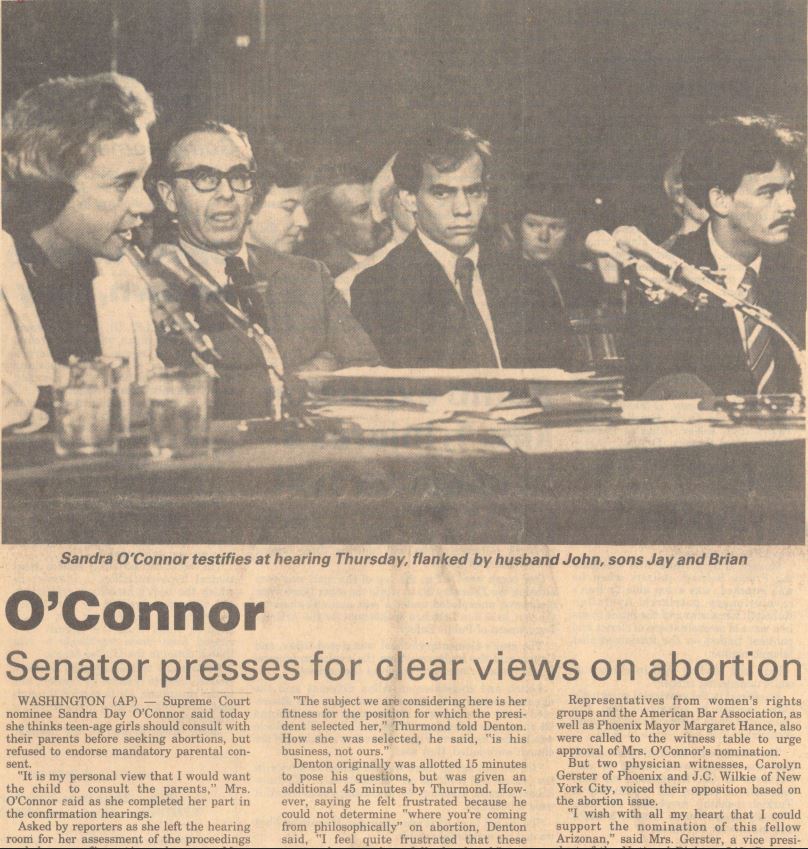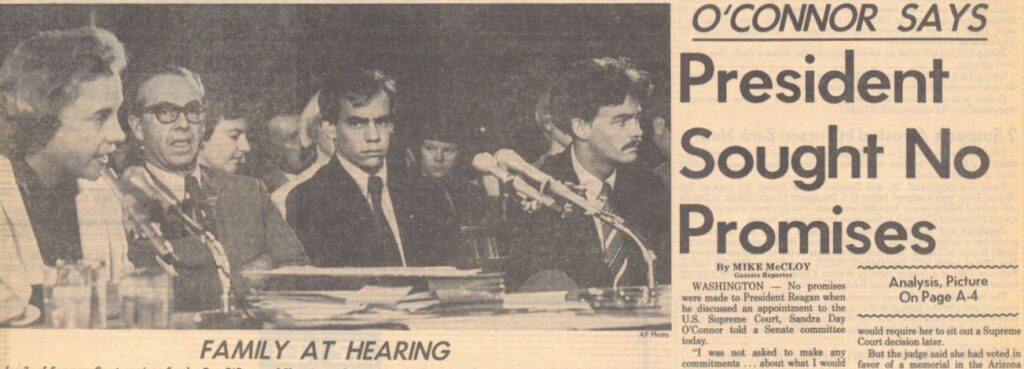O’Connor’s net worth more than a million
WASHINGTON (UPI) – Sandra O’Connor, President Reagan’s choice to be the first woman on the Supreme Court, shares a net worth of more than $1 million with her l~wyer husband, accor ding to documents filed Sept. 1. O’Connor, answering guestions for the Senate, also confirmed she is an advocate of the judicial restraint Reagan favors. The Constitution requires federal courts “s crupulously to avoid making law or engag ing in general superv ision of executive functions,” she sai d. The Senate Jud iciar y Comm ittee will hold hearings on her nomination Sept. 9-11, and it is expected O’Connor will be easily confirm ed despit e criticism from abortion opponents and New Right groups . Reagan announ ced his select ion of the 51-year -old Arizona Court of appeals judg e on Jul y 7, but waited Wltil late August to formally send her name to the Senate. The nomination dre w heated opposition based on Mrs. O’Connor’s ‘Otes on abortio n questions and he support of the Equal Rights Amendm ent while a member of the Arizona Senate. In answering a standa rd questionnaire for the jud iciary panel. O’Connor said she and her husband , J ohn. have a net worth of $1.1 mill ion. That places her in sam e financial league as Justice Lewis Powell and Chief Justice Warr en Burger , both millionnaires . Retired Justice Potter Stewar t – whom Mrs. O’Connor would replace – also had a net worth considerably in excess of $1 million. Most of the family wealth is in real estate and in her family ‘s Lazy 3 Ranch.





